Resource Scholars & Experts
Resource Scholars & Experts
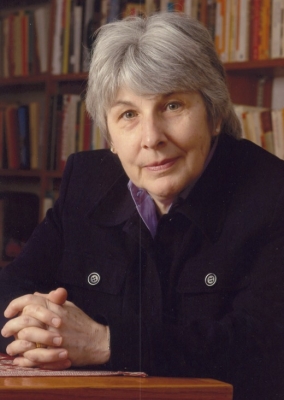
Sheila Fitzpatrick
Sheila Fitzpatrick is a historian of modern Russia and twentieth-century migration who is currently Professor of History at the Institute for Humanities and Social Sciences, Australian Catholic University, Melbourne; Honorary Professor at the Universities of Sydney and Melbourne; and Distinguished Service Professor Emerita of the University of Chicago. Her recent books include A Spy in the Archives (2013); On Stalin’s Team: The Years of Living Dangerously in Soviet Politics (2015), Mischka’s War: A European Odyssey of the 1940 (2017), White Russians, Red Peril: A Cold War History of Migration to Australia (2021) and The Shortest History of the Soviet Union (2022). Her new book, Lost Souls: Soviet Displaced Persons and the Birth of the Cold War, will be published by Princeton University Press in November.
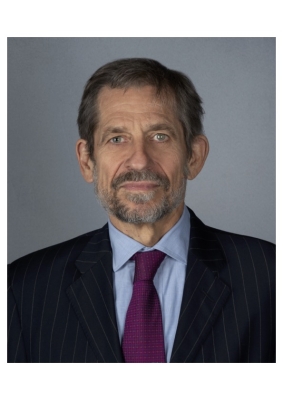
Thomas Graham
Thomas E. Graham is a distinguished fellow at the Council on Foreign Relations. He is a cofounder of the Russian, East European, and Eurasian studies program at Yale University and sits on its faculty steering committee. He is also a research fellow at the MacMillan Center at Yale, where he teaches a course on U.S.-Russian relations. Graham was special assistant to the president and senior director for Russia on the National Security Council staff from 2004 to 2007, during which he managed a White House-Kremlin strategic dialogue. He was director for Russian affairs on the staff from 2002 to 2004.
Graham was a Foreign Service officer for fourteen years. His assignments included two tours of duty at the U.S. Embassy in Moscow in the late Soviet period and in the middle of the 1990s during which he served as head of the political internal unit and acting political counselor. Between tours in Moscow, he worked on Russian and Soviet affairs on the policy planning staff at the U.S. Department of State and as a policy assistant in the office of the under secretary of defense for policy.
Graham serves on the Kennan council of the Kennan Institute of the Wilson Center and on the advisory board of Russia Matters, a project of the Harvard Kennedy School’s Belfer Center for Science and International Affairs with the goal of enhancing the understanding of Russia among policymakers and the interested public. He also serves on the editorial board of the US-Canada Journal of the USA-Canada Institute of the Russian Academy of Sciences.
Graham holds a BA in Russian Studies from Yale University, an MA in History, and a PhD in Political Science from Harvard University.
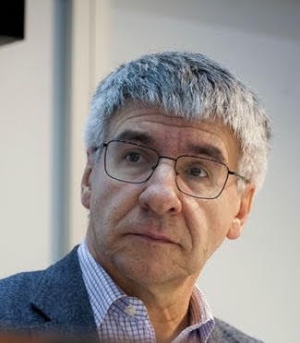
Sergey Ivanov
Sergey Ivanov is an expert in Byzantine studies, who taught at at Moscow and St.Petersburg State Universities, at the Higher School of Economics, where he headed the Department of Ancient and Byzantine History, and at Northwestern University in Evanston. Professor Ivanov is a corresponding fellow of the British Academy . Professor Ivanov is a recipient of the Russian Enlightener Prize (2012), nomination “Humanities”. In total Sergey Ivanov has over 200 scholarly publications. Among his main books are: Holy Fools in Byzantium and Beyond (English translation - 2006 (among other translations), Russian original - 2005); In Search of Constantinople. A Guidebook through Byzantine Istanbul and Its Surroundings (2021 - English translation (among other translations), 2011 - Russian original); Византийская культура и агиография [Moscow, YaSK, 2020]; Pearls Before Swine: Missionary Work in Byzantium (English translation - 2015 (among other translations); 2003 - Russian original).
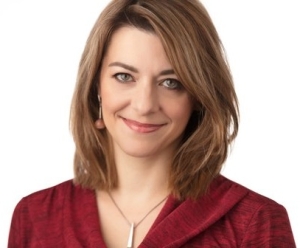
Marlene Laruelle
Marlene Laruelle, Ph.D., is Research Professor of International Affairs and Political Science at the Elliott School of International Affairs, The George Washington University. She is also Director of the Illiberalism Studies Program, and the former director of the Institute for European, Russian and Eurasian Studies (IERES). Dr. Laruelle received her Ph.D. in history at the National Institute of Oriental Languages and Cultures (INALCO) and her post-doctoral degree (habilitation) in political science at Sciences-Po in Paris. Trained in political philosophy, she explores how nationalism and conservative values are becoming mainstream in different cultural contexts. She focuses on Russia’s ideological landscape and its outreach abroad. She has been also working on Central Asia’s nationhood and regional environment, as well as on Russia’s Arctic policy. She has widely published on Russia’s ideologies and nationalism, on Russia’s foreign policy and soft power strategies.
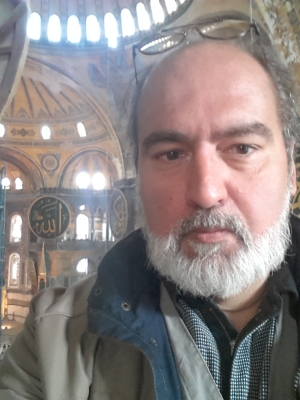
Alexei Lidov
Professor Alexei Lidov is a specialist in Byzantine iconography, Eastern Christian sacred images and theory of art. Professor Lidov is the Head of Department at the Institute of World Cultures of the Moscow State University, the founder and director of the Research Centre for Eastern Christian Culture in Moscow (since 1991) and a full member (academician) of the Russian Academy of Arts (elected in 2012). He was elected a Member and Fellow of St.Catherine’s College of the Oxford University.
Lidov has been awarded by fellowships of the Princeton Institute for Advanced Study (1994/95), the College de France in Paris (1998), the British Academy (1999), the Getty Research Institute (2001) and Princeton University (2005), Oxford University (2016) as well as of some other important institutions. He was lecturing at leading universities of the USA (Princeton, Harvard, Columbia), Europe (Oxford, Cambridge, Sorbonne) and Japan.
Lidov was the initiator and organizer of several innovative research programs and international symposia. He is the author and editor of 33 monographs, catalogues and collections of articles.
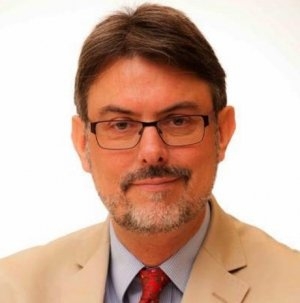
Anatol Lieven
Anatol Lieven is a senior fellow for Russia and Europe at the Quincy Institute for Responsible Statecraft in Washington, DC. He was a professor at Georgetown University in Qatar from 2014 to 2021. He is a member of the academic board of the Valdai discussion club in Russia. He also serves on the advisory committee of the South Asia Department of the British Foreign and Commonwealth Office. He holds a BA and PhD from Cambridge University in England.
His latest book, Climate Change and the Nation State, was published in 2020 with Penguin. An updated paperback edition appeared in 2023.
From 1985 to 1998, Anatol Lieven worked as a British journalist in South Asia, the former Soviet Union, and Eastern Europe, and is author of several books on Russia and its neighbors, including Ukraine and Russia: A Fraternal Rivalry (United States Institute of Peace Press, 1999).
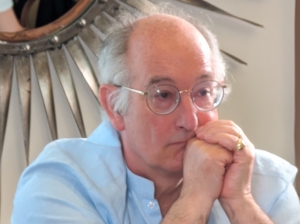
Dominic Lieven
Professor Dominic Lieven graduated first in Cambridge University’s class of 1973 with a BA in History and was a Kennedy Scholar at Harvard in 1973-1974. Subsequently, he has been, inter alia, a Humboldt Fellow in Germany and a visiting professor at Tokyo University and Harvard. He received his PhD from the School of Slavonic Studies at University College London in 1978.
Professor Lieven was a lecturer, senior lecturer and professor at the London School of Economics (LSE; 1978-2011). He became a fellow of the British Academy in 2001. He was head of the Department of Government from 2001 to 2004 and head of the Department of International History from 2009 to 2011. From there he was a senior research fellow at Trinity College, Cambridge (2011-2019) and has been an honorary fellow since 2019. In 2014, he was awarded the Order of Friendship by the Russian Federation.
He is currently a visiting professor in the Department of International History at LSE. Professor Lieven is also the chair of the board of the Paulsen Programme at LSE, hosted by the Department of International History at LSE.
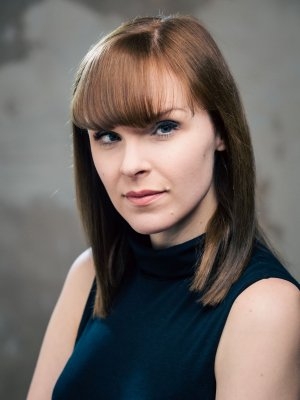
Hanna Notte
Dr. Hanna Notte is the director of the Eurasia Nonproliferation Program at the James Martin Center for Nonproliferation Studies (CNS) and a Senior Associate (non-resident) in the Europe, Russia, and Eurasia Program at the Center for Strategic & International Studies (CSIS) in Washington DC. Her work focuses on Russia’s foreign, arms control and nonproliferation policies; Russia’s relations with the “Global South” (and Middle East in particular); Russian military innovation; and arms control and nonproliferation in the Middle East. Her contributions have appeared in The Nonproliferation Review, Frankfurter Allgemeine Zeitung, Foreign Policy, The Wall Street Journal, The Washington Post, and War on the Rocks, among others. She is the co-author of Death Dust: The Rise, Demise, and Future of Radiological Weapons Programs, forthcoming with Stanford University Press (2023).
Notte joint CNS in 2020 and worked for its European branch, the Vienna Center for Disarmament and Non-Proliferation, from 2021-2023. Previously, Dr. Notte worked with The Shaikh Group, an NGO focused on informal diplomacy in Middle East conflicts, supporting its engagement with Russia. She was a visiting researcher in 2015–16 with the Institute of Oriental Studies of the Russian Academy of Sciences and the Carnegie Moscow Center. She is proficient in Russian and Arabic. Hanna Notte is based in Berlin.

Yuri Slezkine
Yuri Slezkine is a professor of the Graduate School at the University of California, Berkeley; a senior research fellow at St. Edmund College, Oxford; and a member of the American Academy of Arts and Sciences. He has been a fellow at the Hoover Institution, the International Institute at the University of Michigan, the Center for Advanced Study in the Behavioral Sciences, the John Simon Guggenheim Memorial Foundation, and Wissenschaftskolleg zu Berlin. He served as a distinguished visiting professor at Vassar College, an honorary professor at the University of Nottingham, and a visiting professor at the Ludwig-Maximilians University in Munich and Sciences Po in Paris. His book, The Jewish Century (Princeton UP, 2004), has received several awards and has been translated into ten languages. His next book, The House of Government: A Saga of the Russian Revolution (Princeton University Press, 2017), was named among the best books of 2017 by the New York Times, Spectator, the Guardian, the Economist, the London Review of Books, and Le Monde, among others, and has been translated into nine languages. His most recent book is a Latvian-language essay entitled Ivar Smilga and the Russian Epilogue of the Latvian Revolution (Rigas Laiks, 2022).
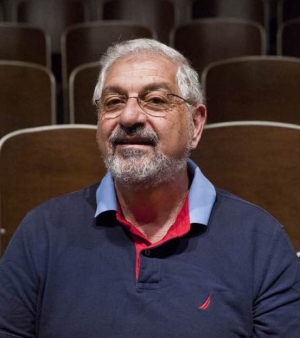
Ronald Suny
Ronald Grigor Suny is William H. Sewell, Jr. Distinguished University Professor of History and Professor of Political Science Emeritus at the University of Michigan and Emeritus Professor of Political Science and History at the University of Chicago. He was the first holder of the Alex Manoogian Chair in Modern Armenian History at the University of Michigan, where he founded and directed the Armenian Studies Program. He is author of The Baku Commune: Class and Nationality in the Russian Revolution; The Making of the Georgian Nation; Looking Toward Ararat: Armenia in Modern History; The Revenge of the Past: Nationalism, Revolution, and the Collapse of the Soviet Union; The Soviet Experiment: Russia, the Soviet Union and the Successor States; “They Can Live in the Desert But Nowhere Else”: A History of the Armenian Genocide; Red Flag Unfurled: History, Historians, and the Russian Revolution; Red Flag Wounded: Stalinism and the Fate of the Soviet Experiment; Stalin: Passage to Revolution:and co-author with Valerie Kivelson of Russia’s Empires. He is currently working on a book on the history of the nation-form and the recent upsurge of exclusivist nationalisms and authoritarian populisms: Forging the Nation: The Making and Faking of Nationalisms.
Vitali Suslenkov
Vitali Suslenkov’s research interests include late imperial Roman and early Christian art (c.100–600 CE): Roman portrait sculpture, late antique and early Christian art, iconography, Eastern Cults in Late Antiquity, the formation of iconography in early Christian art); early Armenian Christian art—specifically, Hellenic tradition in dispersion (the Middle East and early Buddhist India); archetypes of sacred art in East and West: sacred spaces and imagery of the Sacred; select issues in Western art (History of Landscape Painting, Classical heritage in art of the New Time, etc.)
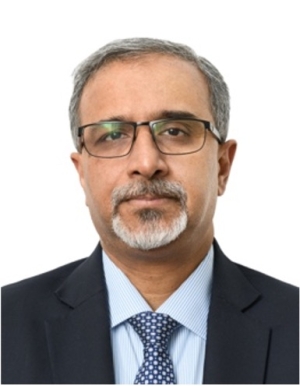
Venkatesh Varma
D.B.Venkatesh Varma served in the Indian Foreign Service from 1988 to 2021. During his diplomatic career, he worked in the Office of the External Affairs Minister and in the Prime Minister’s Office. He served as India’s Ambassador to Conference on Disarmament in Geneva, to the Kingdom of Spain and to the Russian Federation, until October 2021.He has vast experience in India’s Security and Defence policies and served as Joint Secretary in charge of Disarmament and International Security in the Ministry of External Affairs. He was the first Recipient of the S.K.Singh Award for Excellence in the Indian Foreign Service in 2011 for his contribution to the negotiations of the Civil Nuclear Initiative. He is Distinguished Fellow at the VIF New Delhi. He is a member of the UN Secretary General’s Advisory Board on Disarmament Matters.
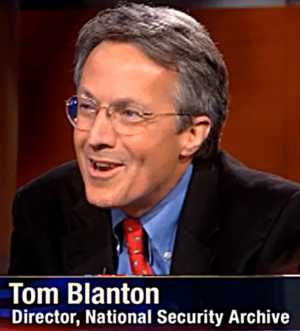
Thomas Blanton
Thomas Blanton is director (since 1992) of the independent non-governmental National Security Archive at George Washington University (https://nsarchive.gwu.edu). He won the 2004 Emmy Award for individual achievement in news and documentary research, and on behalf of the Archive received the George Polk Award in 2000 for “piercing self-serving veils of government secrecy.” His books have been awarded the 2011 Link-Kuehl Prize from the Society for Historians of American Foreign Relations, selection by Choice magazine as “Outstanding Academic Title 2017,” and the American Library Association’s James Madison Award Citation in 1996, among other honors. The National Freedom of Information Act Hall of Fame elected him a member in 2006, and Tufts University presented him the Dr. Jean Mayer Global Citizenship Award in 2011 for “decades of demystifying and exposing the underworld of global diplomacy.” His articles have appeared in Diplomatic History, Foreign Policy, Bulletin of the Atomic Scientists, The New York Times, and the Washington Post, among many other journals. A graduate of Harvard University, where he won the Newcomen Prize in History, he is series editor for the National Security Archive’s online and book publications of more than a million pages of declassified U.S. government documents obtained through the Archive’s more than 70,000 Freedom of Information Act requests.
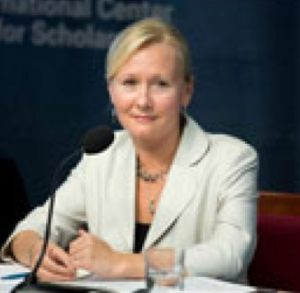
Svetlana Savranskaya
Svetlana Savranskaya is director of Russia programs at the National Security Archive at George Washington University and adjunct professor at American University’s School of International Service. She leads the Cooperative Threat Reduction Program of the Archive, focusing on the Nunn-Lugar initiative and the ongoing challenges of U.S.-Russia relations, and manages the Archive’s work with academics and organizations still inside Russia and those now in exile, including long-standing partnerships with the Memorial Society and the Moscow Helsinki Group. Her books include The Soviet Cuban Missile Crisis: Castro, Mikoyan, Kennedy, Khrushchev, and the Missiles of November (Woodrow Wilson Center Press/Stanford University Press, 2012, with Sergo Mikoyan); “Masterpieces of History”: The Peaceful End of the Cold War in Europe 1989 (Central European University Press, 2010, with Thomas Blanton and Vladislav Zubok); and The Last Superpower Summits: Gorbachev, Reagan and Bush: Conversations that Ended the Cold War (Central European University Press, 2016, with Thomas Blanton). A graduate of Moscow State University, she earned her Ph.D. at Emory University. Her articles have appeared in the Journal of Strategic Studies and the Cold War International History Project Bulletin, and she has authored book chapters for the World Political Forum, the Cambridge History of the Cold War, and many other volumes.
Regional Experts
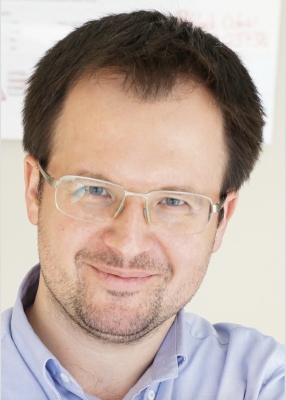
Sener Akturk
Sener Akturk is Professor in the Department of International Relations at Koç University. He is a scholar of comparative politics, with a focus on comparative politics of ethnicity, religion, and nationalism. After completing his BA and MA at the University of Chicago and his PhD in political science at the University of California, Berkeley, he was a postdoctoral fellow at the Davis Center for Russian and Eurasian Studies and a Visiting Lecturer at the Department of Government at Harvard University. His book, Regimes of Ethnicity and Nationhood in Germany, Russia, and Turkey (Cambridge University Press, 2012) received the 2013 Joseph Rothschild book prize from the Association for the Study of Nationalities. Akturk is the recipient of Peter Odegard Award, Marie Curie International Reintegration Grant, Baki Komsuoglu Social Sciences Encouragement Award, Kadir Has Social Sciences Prize, Turkish Academy of Sciences Young Scientist Award, BAGEP Science Academy Award, and TUBİTAK Incentive Prize. He is an Associate member of the Turkish Academy of Sciences. His numerous publications have appeared in many prestigious academic journals, including International Security, Journal of Ethnic and Migration Studies, Perspectives on Politics, Post-Soviet Affairs, and World Politics.
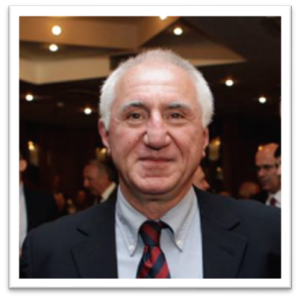
Levan Asatiani
Levan Asatiani is specialist in Economic Geography. Currently he is holding a position of consultant to the Administration of the Government of Georgia. During his career in Ministry of Foreign Affairs of Georgia Mr. Asatiani served as the Director of the Department of Asia, Africa, Australia and Pacific Rim and Director of the Department of Eastern Affairs. In 2004 he was appointed as an Ambassador Extraordinary and Plenipotentiary of Georgia to the Islamic Republic of Iran.
In 1999-2002 Mr. Asatiani worked at the OSCE Mission in Croatia. In 1991-1992 he was a Member of the Supreme Council (Parliament) of Georgia.
Levan Asatiani is actively involved in an academic field, he has been a faculty member at the Georgian Institute of Public Affairs since 2010.
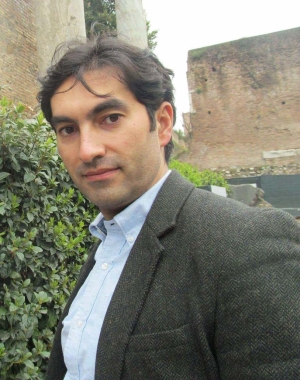
Arthur Atanesyan
Arthur V. Atanesyan is a professor and head of the Department of Applied Sociology at the Faculty of Sociology of the Yerevan State University of Armenia. His area of research and teaching includes political and military sociology, conflict communication, and mass media theories.
Dr. Atanesyan served as OSCE national expert (2012-2014), as a national consultant of the Council of Europe Project on Human Rights and Women in the Armed Forces (HRWAF, 2018-2021), and as a local expert of the 2016-2018 Action Plan on Ensuring Women’s Protection and Equal Opportunities in Defense Sector in the Republic of Armenia. He volunteered in a monitoring group for the prevention of torture and inhuman treatment (OPCAT) at the Ombudsman’s office of Armenia (2010-2019).
His recent publications include: “Armenia between Russia and the West: Foreign Political Priorities in Public Opinion” (Sotsiologicheskie issledovaniya (Sociological Studies), “Women in the Armed Forces and Conflicts: The U.S. Policies and Experience” (USA & Canada: Economics, Politics, Culture), and Media Framing on Armed Conflicts: Limits of Peace Journalism on the Nagorno-Karabakh Conflict (Journal of Intervention and Statebuilding).
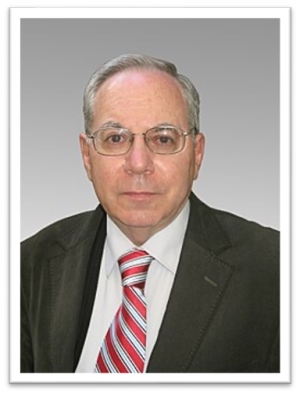
Revaz Gachechiladze
Revaz Gachechiladze is a specialist in Oriental Studies. He served as Ambassador Extraordinary and Plenipotentiary of Georgia in the State of Israel (1998-2004), the Republic of Armenia (2005-2009), the United Kingdom of Great Britain and Northern Ireland (2014-2016), and the Slovak Republic (2016-2020).
Mr. Gachechiladze is a member of Georgian National Academy of Sciences since 2018. He served as a President of the Geographical Society of Georgia (2008-2016) and is an Honorary Foreign Fellow of the Royal Geographical Society with the Institute of British Geographers (1999).
Mr. Gachechiladze is actively involved in an academic field, his research interests are political geography and geopolitics of the Middle East and the South Caucasus. He is a professor at Ivane Javakhishvili Tbilisi State University. Revaz Gachechiladze is an author of over 200 scientific publications, among them 30 monographs and textbooks.
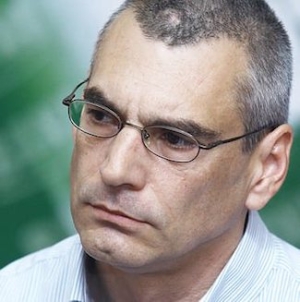
Richard Giragosian
Mr. Richard Giragosian is the Founding Director of the Regional Studies Center (RSC), an independent “think tank” in Armenia. He is a Guest Lecturer at the NATO Defense College and Rome and has previously served as a Visiting Professor at the College of Europe’s Natolin Campus and at the Yerevan State University in Armenia. For nine years, Giragosian served on the staff of the Joint Economic Committee (JEC) of the U.S. Congress. From 2002-2006, Giragosian served as a guest lecturer for the U.S. Army’s John F. Kennedy Special Warfare Center and School at Fort Bragg, NC.
Since moving to Armenia in 2006, he has served as a consultant for the Asian Development Bank (ADB), the European Union Delegation to Armenia, the European Parliament (EU), the International Crisis Group (ICG), and the French Ministry of Defense, as well as the Organization for Security and Cooperation in Europe (OSCE), and the U.S. Departments of Defense and State, among others.
In addition, he has contributed to a dozen books, most recently including “Small States and the Large Costs of Regional Fracture: The Case of Armenia,” in Ohanyan, Anna, Editor, Russia Abroad. Driving Regional Fracture in Post-Communist Eurasia and Beyond (Georgetown University Press: 2018) and chapters in: Kamrava, Mehran, Ed., The Great Game in West Asia: Iran, Turkey and the South Caucasus, Georgetown University, Doha, Qatar (Oxford University Press: 2017); “Twenty-Five Years On: Armenia’s Difficult Period of Statebuilding,” in Hunter, Shireen, Ed., The New Geopolitics of the South Caucasus. Prospects for Regional Cooperation and Conflict Resolution, (Rowman & Littlefield: 2017).
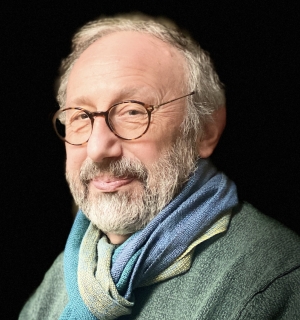
Mark Grigorian
Journalist and author with PhD in Russian linguistics. Worked as a journalist and political analyst in Yerevan until 2002, when he survived an assassination attempt and was forced to move to London, UK. In London he worked for the BBC as a producer and broadcaster in the Russian service. His main areas of expertise included post-Soviet space, specifically Central Asia and Caucasus. In 2014 he moved back to Armenia, where he authored a TV series about the city of Yerevan. In 2017-2018 he was the director of the Public Radio of Armenia. Currently he is the director of the National Museum-Institute of Architecture. He is the author of several books, including Manual for Journalists (2007, in Russian), Yerevan: Biography of the City (2022, in Russian, 2023, in Armenian). He has received multiple awards, including Hellman/Hammett grant “In recognition of courage in the face of political persecution”, 2003. BBC Original Online Journalism Award, 2005.
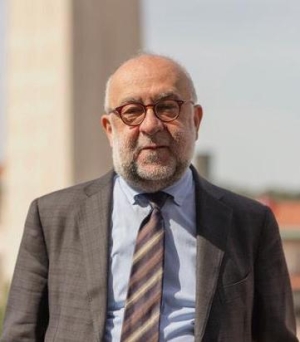
Ahmet İçduygu
Ahmet İçduygu currently holds a dual appointment as a full professor at Koç, one is in the
Department of International Relations and the other is in the Department of Sociology. He is also
the Director of the Migration Research Center at Koc (MiReKoc). He holds a PhD in
Demography from the Australian National University. He held visiting professor or fellow
positions at Stockholm University, the University of Warwick, the University of Manchester, the
European University Institute in Florence, the University of Pennsylvania, Malmö University,
and the University of Amsterdam. He is an elected member of the Science Academy in Turkey.
He is the editor-in-chief of the well-established scholarly journal, International Migration. In
addition to his own individual research projects, Prof. İçduygu has conducted various research
projects for the international organizations such as IOM, UNHCR, EU, OECD and ILO. He
teaches on migration studies, theories and practices of citizenship, international organizations,
civil society, nationalism and ethnicity, and research methods. In addition to his numerous
articles in scholarly journals, such as Ethnic and Racial Studies, Citizenship Studies, European
Review, International Migration, International Labor and Working Class History, Population,
Space and Place, British Journal of Middle Eastern Studies, and Journal of Ethnic, and
Migration Studies, his books include: Migration and Transformation: Multi-Level Analysis of
Migrant Transnationalism; Countries of Migrants, Cities of Migrants – Italy, Spain, Turkey; and
Critical Reflections in Migration Research: Views from the South and the East.
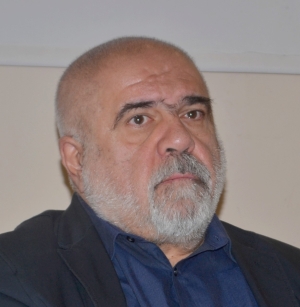
Alexander Iskandaryan
Alexander Iskandaryan is a political scientist, the Director of the Yerevan-based Caucasus Institute. His areas of study are ethnopolitical conflicts, post-Communist transformations and nation building in the former USSR in general and in the Caucasus in particular. He has published and spoken on the emergence of post-Soviet institutions, elites and identities; he has also conducted and supervised research on conflicts, migrations, discourses, media development and cross-border integration. He is also a popular political commentator on television and other types of media.
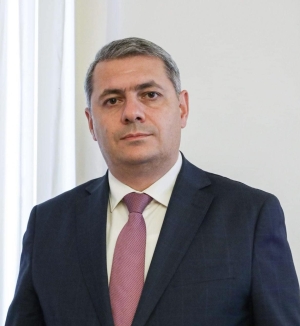
Sergey Minasyan
Sergey Minasyan is the deputy director of the Caucasus Institute, former diplomat, analyst and expert on foreign and security policy and strategic studies. His sphere of academic and professional competence focuses on military history, regional ethno-political conflicts, foreign policy and security issues in the South Caucasus and in the post-soviet space, theory and practice of deterrence as well as military-political analyses. He is the author of 15 books and reports and more than 100 academic papers.
Sergey Minasyan holds an MA in International Relation from the Yerevan State University, a PhD in Military History from the Institute of History of the National Academy of Sciences of Armenia as well as a degree of the Doctor of Sciences in Political Sciences and International Relations from the National Defense Research Institute of the MoD of Armenia. Sergey Minasyan was the Ambassador of the Republic of Armenia to Romania in 2017-2023. He holds the diplomatic rank of Envoy Extraordinary and Minister Plenipotentiary.
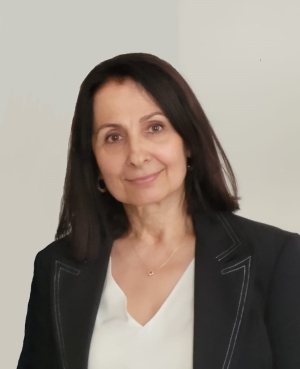
Turkan Olcay
Turkan Olcay is a Doctor of Philological Sciences (2002) and Full Professor (2012) at the Department of Russian Language and Literature at Istanbul University where she delivers courses on 19th-Century Russian Literature since 1994 and mentors master’s and doctoral students. She has also taught as a visiting professor at Anadolu University (Türkiye), L.N. Gumilyov Eurasian National University (Kazakhstan), Sofia University “St. KlimentOhridski” (Bulgaria), Masaryk University (Czech Republic) and Jagiellonian University (Poland).
Prof. Dr. Olcay’s fields of specialization are 19th-Century Russian literature and Turkish-Russian cultural and literary relations, as well as the life and socio-cultural activities of the Russian immigrants (known as “White Russians”) in Istanbul in the 1920s. She has participated in many conferences, has authored five books and has written numerous publications including over hundred articles and book chapters. She is the editor-in-chief of the collective works Русская белая эмиграция в Турции век спустя 1919-2019 (Moscow: A. Solzhenitsyn House of Russia Abroad, 2019), and “Beyaz Rusların Gelibolu Gurbetinin 100. Yıldönümü” (“The 100th Anniversary of the White Russians’ Exile in Gallipoli”) (Chanakkale: COMU, 2020).
Prof. Dr. Olcay has been carrying out institutional and departmental duties, serving on the editorial boards of leading international journals and is a member of the Expert Council of the Center for Turkish-Russian Cooperation in the field of research and practice TURUSIA at Chanakkale 18 March University.
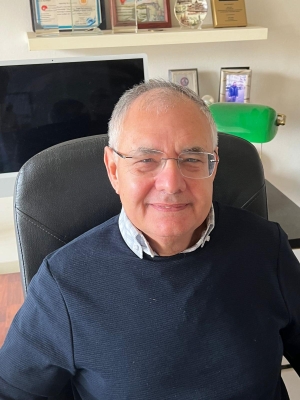
Ziya Öniş
Ziya Öniş is Professor of International Political Economy at Koç University in Istanbul. Prior to joining Koç University he was Professor of Economics at Boğaziçi University. He is the former Director of both the Center for Research on Globalization, Peace and Democratic Governance (GLODEM) and the Graduate School of Social Sciences and Humanities at Koç University. His recent research focuses on rising powers and the emerging post-liberal international order, varieties of populism in a global context, democratic backsliding and authoritarian turns in the global South and the European Periphery, domestic politics-foreign policy linkages and new wave of economic crises in emerging powers. His articles have been published in Review of International Political Economy, New Political Economy, Global Governance, Journal of Democracy, Comparative Politics, Government and Opposition, Development and Change, Mediterranean Politics, Third World Quarterly, Democratization, Political Science Quarterly, International Affairs inter alia. He is the co-recipient, with Mustafa Kutlay, of the Elizabeth Meehan Prize for the best article published in Government and Opposition in 2019. Most recently, in March 2023, he received the Outstanding Academic Achievement Award in the context of 18 th Kadir Has Awards. He has been a Fellow of the Turkish Academy of Sciences (TÜBA) since 2012.
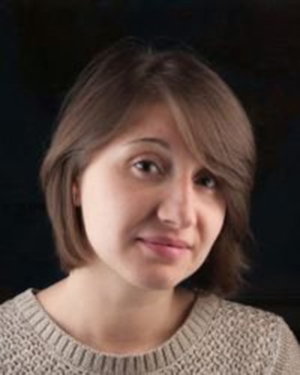
Olesya Vartanyan
Olesya Vartanyan has dedicated over 15 years of her career to working in various conflict zones. As Crisis Group’s senior analyst in the South Caucasus, she is currently responsible for researching and analyzing regional security issues in Armenia, Georgia, and Azerbaijan, with a particular emphasis on conflict regions in the South Caucasus. Olesya has spearheaded engagements with key stakeholders at the national level, in regional capitals, Europe, and the United States.
Before joining Crisis Group in 2016, Olesya pursued a career in journalism, with a specific focus on security and conflict-related matters in Georgia and its breakaway regions. Her field reporting during the 2008 Russia-Georgia war played a crucial role in the groundbreaking investigations conducted by The New York Times on the conflict’s origins. With exclusive access to Abkhazia, she covered crisis developments in the region for Radio Free Europe/Radio Liberty over several years. In 2013, Olesya was honored with the first EU Monitoring Mission’s special prize in Peace Journalism for her reporting on missing people during the Georgia-Abkhazia war in the 1990s. She holds master’s degrees from the War Department of King’s College London and the Media School of the Georgian Institute of Public Affairs.
